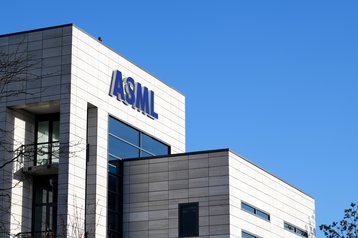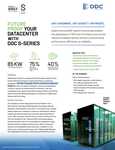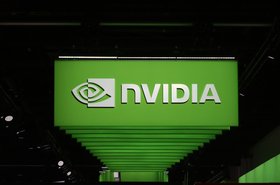Dutch chip manufacturing equipment maker ASML has missed order expectations for Q1 2025, with CEO Christophe Fouquet saying that while demand “remains strong,” there was “uncertainty with some of our customers” as a result of President Trump’s tariffs.
While total net sales for Q1 2025 were €7.7 billion ($8.7bn), a 46 percent year-on-year increase, net bookings for the three-month period were €3.9bn ($4.4bn), almost a billion euros less than analyst expectations of €4.8bn ($5.5bn).
Of that quarterly total, €1.2bn ($1.4bn) related to Extreme Ultraviolet lithography (EUV) bookings, with the company selling 73 new lithography systems during the quarter and four used systems. In Q4 2024, the company sold 119 new systems and 13 old ones.
Despite the uncertainty, ASML said it continues to expect 2025 total net sales to be between €30 billion ($34bn) and €35 billion ($40bn). The company’s share price dropped by around five percent in response to the results.
"Our conversations so far with customers support our expectation that 2025 and 2026 will be growth years,” Fouquet said. “However, the recent tariff announcements have increased uncertainty in the macro environment, and the situation will remain dynamic for a while.”
He added: “As previously shared, artificial intelligence continues to be the primary growth driver in our industry. It has created a shift in the market dynamics that benefits some customers more than others, contributing to both upside potential and downside risks as reflected in our 2025 revenue range.”
Netherlands-based ASML is the sole global supplier of EUV photolithography machines that are needed to make the most advanced 3nm and 5nm chips.
Speaking in a video published following the release of the results, ASML CFO Roger Dassen said that tariffs could potentially impact the company in four ways – tariffs could be imposed on shipments of entire new systems coming into the US; imposed on parts and tools needed for field operations in the US; imposed on what ASML imports on the equipment the company uses for its manufacturing capabilities in the US; or imposed on items by countries shipping things from the US.
“We're very actively working with the entire ecosystem to try and minimize the overall impact on the whole ecosystem as a result of that, once we have a better understanding of how exactly it all works. But clearly our intent is that the impact it should have on our financials be as limited as possible,” Dassen said.
President Trump has yet to impose tariffs on semiconductors manufactured outside the US but has been threatening them since the start of the year, telling reporters in February: “It’ll be 25 percent and higher, and it’ll go very substantially higher over the course of a year.”
Last weekend, Trump told reporters they would be announced this week.







